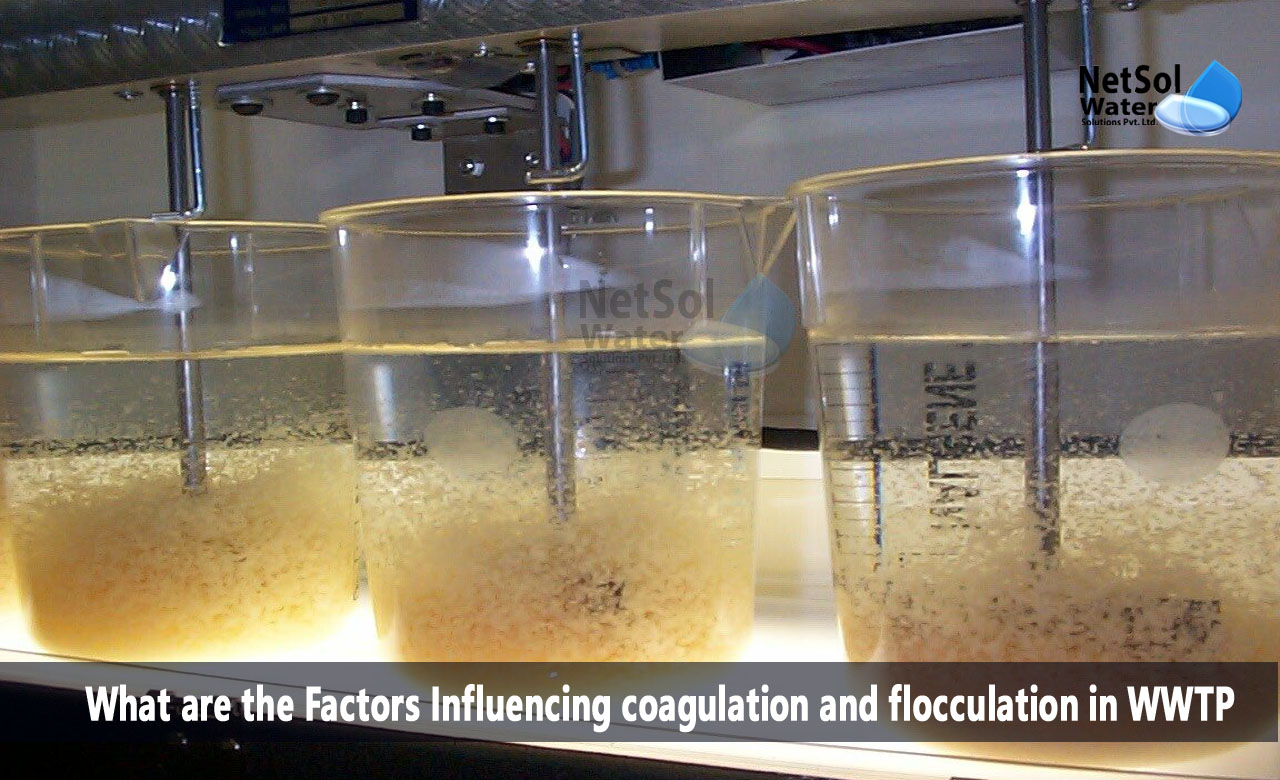One of the challenges for any water or municipal wastewater treatment plant, is the ability to quickly and efficiently remove the vast majority of waste particles from the water.
Coagulation and flocculation for wastewater treatment are tried and true methods for increasing efficiency, and removing a large volume of particles. Here is everything you need to know about these two procedures.
Coagulation in wastewater treatment
It clumps particles together that would otherwise pass through the filter, and fall too slowly to be trapped as sediment.
What is wastewater treatment flocculation?
Flocculation and coagulation work in tandem. After, coagulation has clumped waste particles together,the flocculating agents in wastewater treatment are used, to remove the clumps.
Flocculants are polymers that cause destabilized clumps of particles to agglomerate, and drop out of the solution, thereby removing them from the filtered water. The weight used is determined by the type of particle.
What are the Factors Influencing coagulation and flocculation in WWTP?
Temperature, pH, effluent quality, dosage and coagulant type are all factors that influence coagulation-flocculation. The source, composition charge, particle size, shape, and density of the suspended particles vary greatly.
· pH, Salts, and Alkalinity
The levels of pH, salts, and alkalinity in water are all ways of measuring the amounts of positively and negatively charged particles (cations and anions) in the water. As a result, all three factors influence the amount of coagulants required, to remove turbidity from water.
The pH range of the water is possibly the most important factor in proper coagulation
The vast majority of coagulation issues are caused by incorrect pH levels. The ideal pH range varies depending on the coagulants used, but it is typically between 5 and 7. Lower pH values indicate that there are more positively charged particles floating around in the water, ready to react with negatively charged colloids.
Salts are compounds that contain a cation as well as an anion
The cation and anion separate in water and can interact with other charged particles in the water. Calcium, sodium, magnesium, iron, manganese, sulfate, chloride, phosphate, and other cations and anions, are present in all natural waters. Some of these ions may have an effect on the coagulation process's efficiency.
Water alkalinity is related to both pH and salts in the water
Alkalinity is the ability of water to neutralize acids based on its carbonate, bicarbonate, hydroxide, borate, silicate, and phosphate content. High alkalinity water is preferred for coagulation because it contains more positively charged ions, which interact with the negatively charged colloids.
· Turbidity
The amount and? type of turbidity in the water clearly influences the coagulation process.
Turbidity in natural surface waters is made up of a variety of particle sizes, in varying concentrations. The types and quantities of particles in water change constantly due to precipitation and man-made factors. Heavy rains, for example, will increase turbidity levels, requiring more coagulant, though not in a linear fashion.
Low turbidity waters can also be difficult to coagulate due to the difficulty, in inducing colloidal collision. As a result, floc formation is poor, and a large portion of the turbidity is carried directly to the filters.
· Temperature
Coagulation is hampered by cold water temperature in two ways. For starters, as water temperature drops, almost all chemical reactions in the water slow down. Cold water can also make evenly dispersing the coagulants in the water more difficult. As a result, coagulation becomes less efficient, necessitating the use of higher coagulant doses to compensate.
Second, cold water has an effect on floc settling. Water is very dense at near-freezing temperatures, which keeps the floc suspended in the water.
Services for wastewater treatment from Netsol Water
A wide variety of wastewater treatment options are offered by Netsol Water, including coagulation, flocculation, equalization, settling tanks and many more.
For the most difficult water treatment or wastewater treatment demands of a wide spectrum of clients, including individual businesses, corporations, and local government agencies, Netsol combines cutting-edge technology with decades of experience.
Netsol Water is Greater Noida-based leading water & wastewater treatment plant manufacturer. We are industry's most demanding company based on client review and work quality. We are known as best commercial RO plant manufacturers, industrial RO plant manufacturer, sewage treatment plant manufacturer, Water Softener Plant Manufacturers and effluent treatment plant manufacturers. Apart from this 24x7 customer support is our USP. Call on +91-9650608473, or write us at enquiry@netsolwater.com for any support, inquiry or product-purchase related query.



